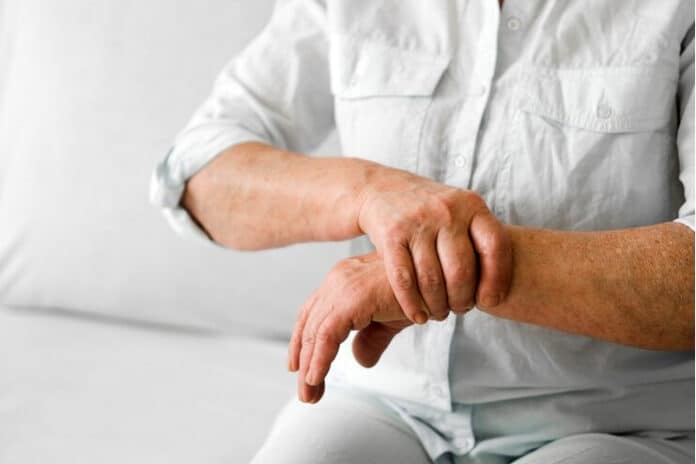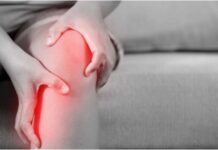Affiliate Disclaimer
Some links in this article are affiliate links. We may earn a small commission if you make a purchase through these links, at no extra cost to you. We only recommend products we find useful to our readersMillions of people have arthritis globally, a widespread ailment that makes daily living difficult. People with arthritis face challenges that impair their functionality and quality of life, from basic activities like holding a doorknob to more difficult ones like climbing stairs. The symptoms of the illness, which include stiffness, discomfort, and decreased range of motion, seriously impair their capacity to carry out daily tasks. But in the face of these obstacles, using assistive technology becomes essential.
In addition to providing pain relief, these devices improve functionality, enabling users to regain their freedom and participate more fully in everyday activities. In this article, we explore the difficulties people with arthritis face when going about their everyday lives and stress the value of assistive technology in lessening its impact.

8 Best Essential Tools for Arthritis Management
1. Pain Relief Devices: (Aukfa XXXL Heating Pad)
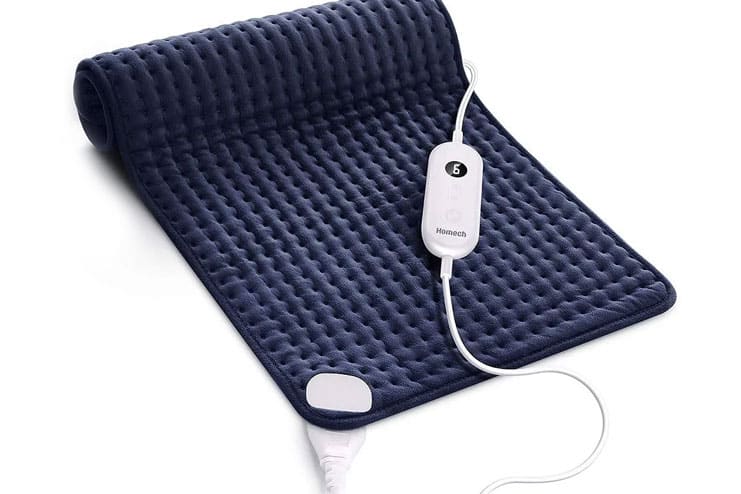
Although the pain associated with arthritis can be incapacitating, several gadgets are available to alleviate its symptoms. One of the most common solutions is heating pads, which provide localized heat therapy to relieve achy muscles and joints. By increasing blood flow, easing tense muscles, and decreasing stiffness, these pads help reduce arthritis-related pain. On the other hand, cold therapy packs are also frequently used because they efficiently numb the afflicted area and lower inflammation. These packs work by constricting blood vessels, which reduces inflammation and weakens nerve signals to relieve pain temporarily.
These painkillers have advantages that go beyond just treating symptoms. They help manage the underlying causes of arthritic pain by focusing on inflammation. Furthermore, their calming sensation can raise comfort levels and encourage relaxation, improving sleep quality and general well-being.
Additionally, these devices provide a non-invasive, drug-free alternative to pain management, which appeals to people who may be concerned about the adverse effects of medications or who prefer natural solutions. Pain treatment devices greatly enhance the quality of life for people living with arthritis by offering adequate and practical daily pain management strategies.
Related Article: 13 Lifestyle Changes for Arthritis – Lead A Healthier Life
2. Joint Support Tools: (S RAW SCIENCE Joint Support Supplement)
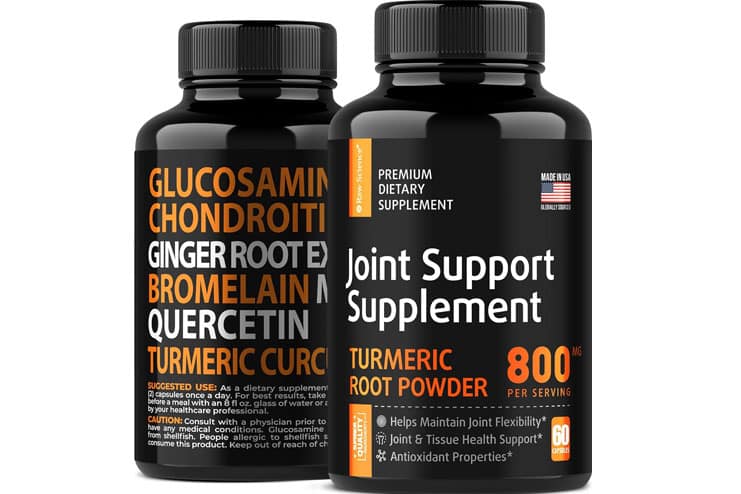
Retaining joint stability and reducing strain when moving is critical for people with arthritis. Numerous instruments are available to give arthritic joints the vital assistance they need. The most popular choices are compression sleeves, braces, and splints. Braces help limit excessive movement and lower the risk of damage by providing external support to weak or unstable joints. Conversely, splints immobilize the joint to aid in healing and reduce pain, especially for arthritic wrists and fingers. Applying light pressure to the injured area with compression sleeves can enhance blood flow, lessen edema, and offer extra support while exercising.
For those with arthritis, these joint support devices are essential for improving usefulness and mobility. Stabilizing joints and lowering tension give people more comfort and confidence in participating in daily activities.
Additionally, these gadgets can promote a better range of motion and general joint health by reducing pain and inflammation. Joint support devices, worn during exercise or the day, are vital tools for helping people manage the difficulties associated with arthritis, enabling them to lead active and satisfying lives despite their condition.
Related Article: 8 Hand Exercises to Ease The Pain Effectively
3. Adaptive Kitchen Gadgets (BUNMO Adaptive Utensils)
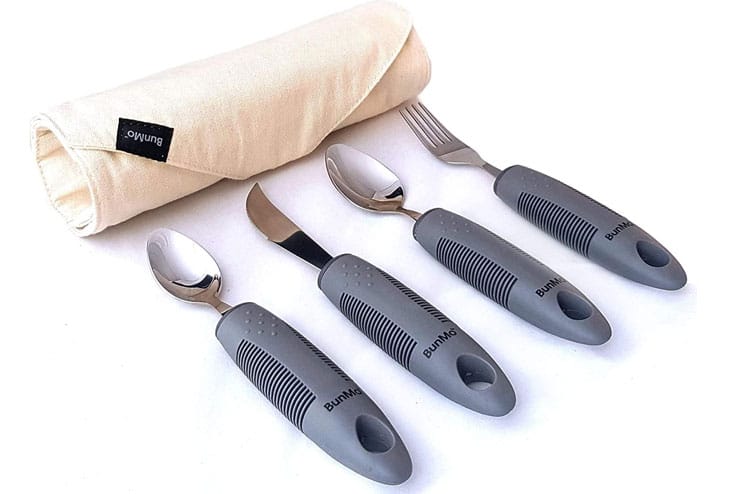
When it comes to food preparation, people with arthritis frequently face various obstacles in the kitchen, the center of the home. However, various cleverly made adaptable kitchen tools have been created to remove these barriers and promote independence. These devices include, among other things, easy-grip bottle openers, ergonomic utensils, and jar openers. With the help of jar openers’ leverage-producing mechanisms, difficult lids can be twisted open more easily without taxing arthritic hands. Similarly, ergonomic utensils have handles carefully made to lessen hand strain and tiredness. It makes it possible for people to hold and move utensils with ease when cooking or dining. Easy-grip bottle openers use ergonomic designs and non-slip materials to make it easier to open bottles with less effort.
These adaptable kitchen appliances are more important than just handy; they encourage safety and independence in people with arthritis. These devices lessen the possibility of mishaps and injuries in the kitchen by removing the need for awkward motions and excessive force.
Additionally, they allow people to continue influencing meal preparation, promoting dignity and empowerment. Adaptable kitchen appliances are priceless resources that improve the cooking experience for people with arthritis, enabling them to relish the joys of culinary inventiveness while overcoming the obstacles presented by their illness.
4. Mobility Aids (E-Z Reacher Grabber Tool for Rheumatoid Arthritis Pain Relief)
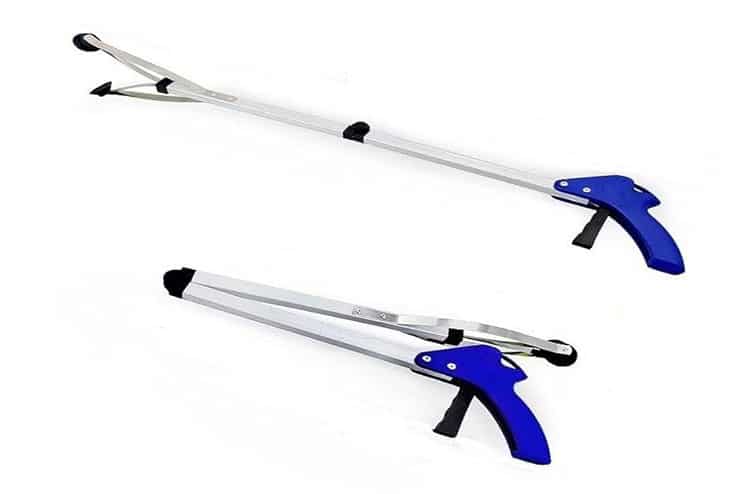
Maintaining movement can be extremely difficult for those with arthritis. Various mobility aids have been created to offer much-needed support. In this context, rollators, walkers, and canes are the most widely used devices. By shifting weight away from the afflicted joints, canes provide straightforward yet efficient support, minimizing pain and enhancing gait stability. Walkers, which have solid frames and hand grips to help people with balance and weight-bearing, offer extra strength and support. With wheels and brakes, rollators provide even more mobility, enabling people to move more freely and autonomously.
These mobility devices offer many more advantages than only helping with walking. Through enhanced stability, confidence, and balance, these gadgets help people with arthritis move around more easily and fall less frequently. Making participation in everyday activities and social interactions more accessible helps encourage independence and improve overall quality of life. Mobility aids can also help people overcome their fear of falling, enabling them to continue being active and involved in their communities. Simply put, these gadgets are incredibly helpful in helping people with arthritis become more mobile and independent to live happy, fulfilled lives.
5. Assistive Devices for Dressing (27″ Dressing Stick)
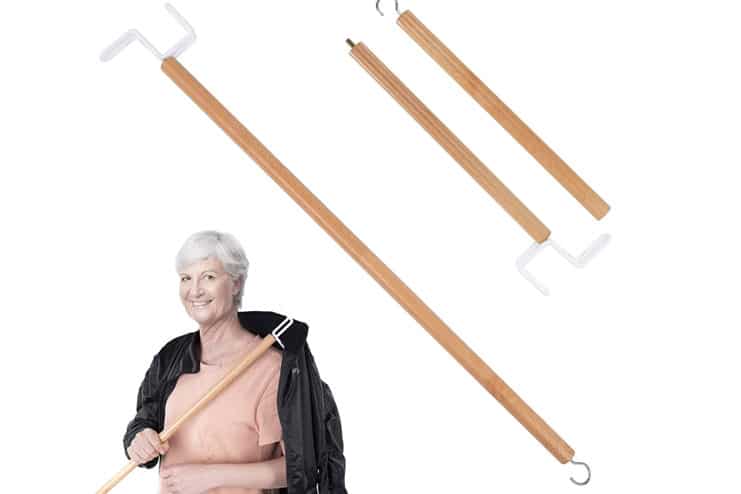
Dressing can be tricky for those with arthritis because of their reduced dexterity and painful joints. A range of assistive devices has been developed to help promote independence in dressing habits. Among these tools are dressing sticks, button hooks, and zipper pulls; each has a distinct purpose in addressing the difficulties associated with arthritis.
The hooked or looped end of dressing sticks helps reach clothing that is out of reach, pushing sleeves off shoulders and drawing up skirts and slacks. Button hooks are made to make buttoning easier. They have a handle that is easier to hold and a hooked end that helps push buttons through buttonholes. With the broader grip that zipper pulls offer, zipping and unzipping clothes are more straightforward and don’t require much finger dexterity or fine motor skills.
These assistive aids are essential in helping people with arthritis-related decreased dexterity perform dressing duties more comfortably. They lessen the need for complex hand movements and ease the aggravation of having trouble using clothes fasteners by offering more leverage and support. Ultimately, these tools encourage increased self-reliance and self-assurance in one’s attire, allowing people to preserve their dignity and independence throughout everyday activities.
6. Home Modifications (Dext Keywing Key Turner)
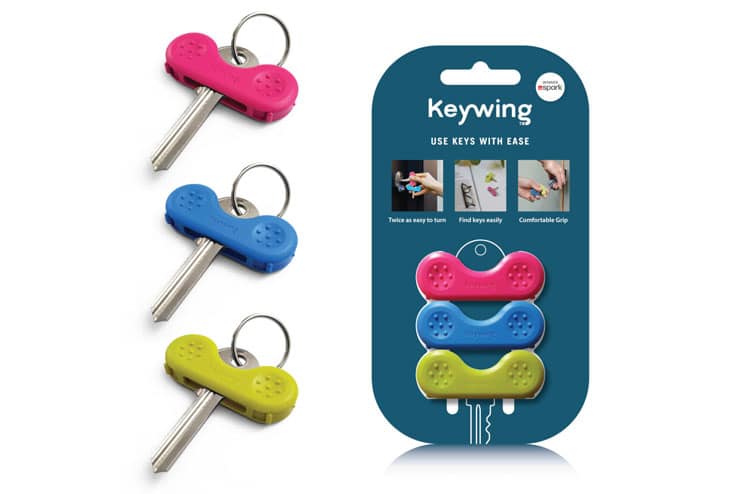
Encouraging safety, independence, and general well-being for people with arthritis requires designing a house that meets their needs. A few adjustments can be made to accommodate the symptoms of arthritis adequately. Installing handrails along hallways and staircases gives people the essential stability and support to navigate their homes confidently and lower their fall risk. Similarly, grab bars reduce the chance of accidents in high-risk areas by providing extra support for standing, sitting, and transferring in restrooms and around toilets and showers. Shower benches offer a secure and cozy place to sit, enabling users to save energy and lessen stress while showering.
It is impossible to overestimate the significance of these house changes. People with arthritis can keep their independence and quality of life by designing a safe and accessible living space. These adjustments ease physical difficulties and give patients and their caretakers peace of mind. Moreover, these modifications allow people to live longer in their homes by lowering the chance of mishaps and injuries, which postpones or prevents the need for institutional care. Home adaptations designed to manage arthritis symptoms are essential for encouraging comfort, security, and independence for those who experience them.
7. Gardening and Outdoor Tools (Nymamypee Garden Tools Set of 3)
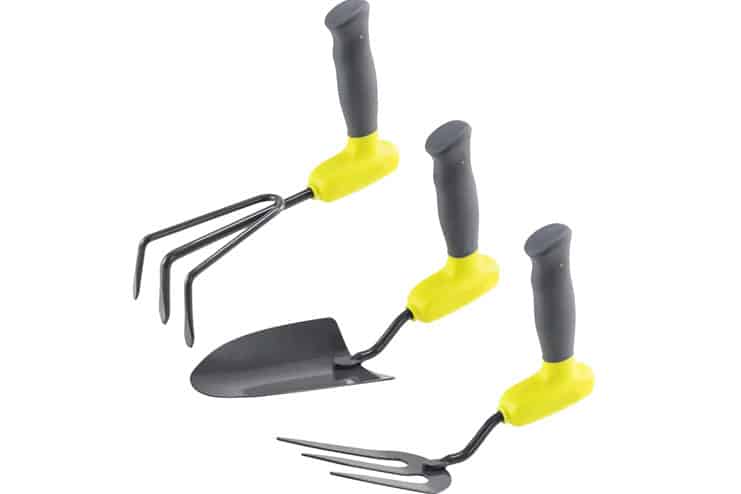
While gardening and outdoor activities can be incredibly fulfilling, they can also provide considerable obstacles for those with arthritis. Fortunately, a variety of comfortable gardening tools and outdoor accessories have been created to increase the accessibility and fun factor of these activities. Rakes, hoes, and weed eaters are examples of long-handled equipment with extended handles that minimize pressure on arthritic joints by reducing the need to bend and reach. Similarly, easy-to-grip, lightweight tools with padded handles provide more comfort and control, reducing the strain and discomfort of gardening for users. When performing jobs that need kneeling, like planting or weeding, knee pads or kneeling benches offer cushioning and support, relieving pressure on the joints and preventing discomfort.
Thanks to these ergonomic tools and aids, people with arthritis can still enjoy their enthusiasm for gardening and outdoor activities. These aids allow people to participate in these activities for extended periods without aggravating their symptoms by reducing strain and discomfort.
Furthermore, they foster independence and self-governance by enabling people to follow their interests and hobbies more easily. Ultimately, ergonomic gardening equipment and outdoor accessories allow people with arthritis to enjoy the mental, emotional, and physical advantages of being outside while reducing the strain on their joints.
8. Writing and Office Aids (lyforx Big Fat Pens Aids Writing)
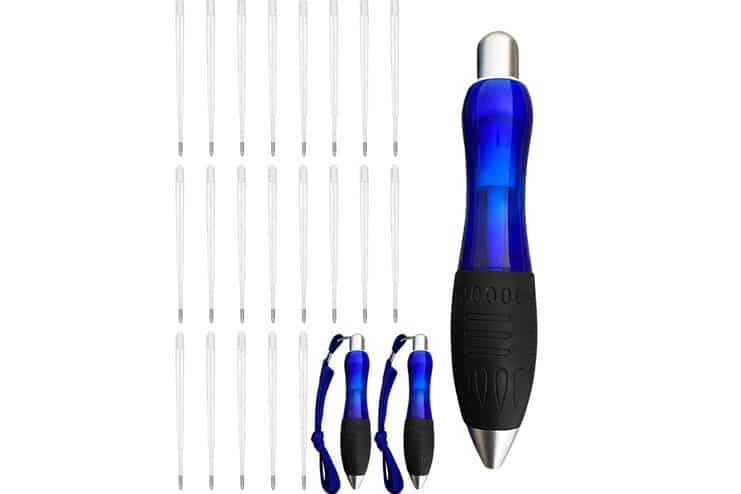
Because arthritis causes hand weariness and discomfort, writing and other office-related chores can be difficult for affected individuals. Thankfully, there are a variety of ergonomic office supplies and writing aids available to help with these problems and enhance general comfort and functionality. Ergonomic designs of writing aids, including pen grips and adaptable pens, lessen the pressure on the fingers and wrists, enabling a more comfortable and regulated grasp when writing. Furthermore, ergonomic keyboard layouts and cushioned wrist rests on adaptable keyboards enable and encourage correct hand placement, which lowers the risk of typing-related repetitive strain injuries.
These aids have advantages that go beyond comfort. Writing aids and ergonomic office gadgets help people with arthritis write and type more efficiently and for extended periods by reducing hand fatigue and discomfort. It not only increases output but also maintains joint health and keeps arthritic symptoms from getting worse. Furthermore, these tools support good ergonomics, lessen hand and wrist strain, enhance general well-being, and support people in maintaining their independence in daily activities. Writing equipment and ergonomic office supplies are essential in helping people with arthritis deal more comfortably and efficiently with the demands of writing and office work.
Conclusion
To sum up, daily living aids are essential for controlling the symptoms of arthritis and improving the quality of life for those who have it. These aids, which range from ergonomic gardening equipment to assistive dressing devices, meet the particular difficulties presented by arthritis and encourage comfort, safety, and independence in day-to-day tasks. People with arthritis must investigate and use the suggested equipment and gadgets customized to their requirements. They can restore their freedom, ease their suffering, and carry on actively participating in the activities they find enjoyable by doing this. Adopting these tools enables people with arthritis to live more independently and with confidence, leading to a more satisfying existence.
References
- https://www.webmd.com/arthritis/heat-and-cold-therapy-for-arthritis-pain
- https://www.everydayhealth.com/rheumatoid-arthritis/treatment/hot-and-cold-therapy/
- https://www.arthritis.org/health-wellness/healthy-living/managing-pain/pain-relief-solutions/heat-therapy-helps-relax-stiff-joints
- https://www.massgeneralbrigham.org/en/about/newsroom/articles/knee-brace-for-osteoarthritis-what-to-look-for
- https://www.healthline.com/health/types-of-osteoarthritis-braces
- https://www.arthritissupplies.com/arthritis-kitchen-openers.html
- https://www.arthritis.org/health-wellness/healthy-living/daily-living/life-hacks-tips/arthritis-friendly-kitchen-tools
- https://arthritis.ca/treatment/pain-management/assistive-devices-resource/mobility-devices
- https://www.medicalnewstoday.com/articles/318463
- https://www.assistedliving.org/home-modifications-for-seniors-aging-in-place/
- https://www.ncbi.nlm.nih.gov/pmc/articles/PMC6604004/
- https://www.verywellhealth.com/top-arthritis-friendly-garden-tools-189399
- https://www.quickscream.com/gardening-tools-for-people-with-arthritis/
- https://www.hpms.com/category-s/1186.htm
- https://ehs.unc.edu/topics/ergonomics/office-ergonomics/
- https://www.thewrightstuff.com/adaptive-writing-aids.html
















